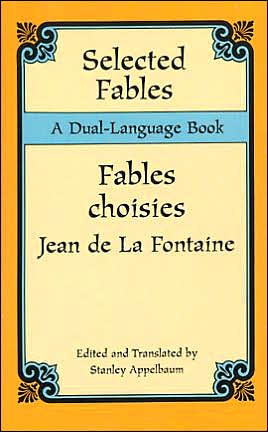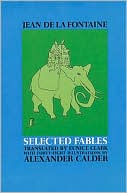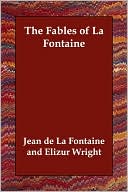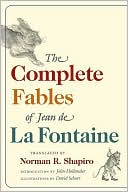Lyrics of the French Renaissance: Marot, Du Bellay, Ronsard
Renowned translator Norman R. Shapiro here presents fresh English versions of poems by three of Western literature’s most gifted and prolific poets—the French Renaissance writers Clément Marot, Joachim Du Bellay, and Pierre de Ronsard. Writing in the rhymed and metered verse typical of the original French poems (which appear on facing pages), Shapiro skillfully adheres to their messages but avoids slavishly literal translations, instead offering creative and spirited...
Search in google:
Renowned translator Norman R. Shapiro here presents fresh English versions of poems by three of Western literature’s most gifted and prolific poets—the French Renaissance writers Clément Marot, Joachim Du Bellay, and Pierre de Ronsard. Writing in the rhymed and metered verse typical of the original French poems (which appear on facing pages), Shapiro skillfully adheres to their messages but avoids slavishly literal translations, instead offering creative and spirited equivalents. Hope Glidden’s accessible introduction, along with the notes she and Shapiro provide on specific poems, will increase readers’ enjoyment and illuminate the historical and linguistic issues relating to this wealth of more than 150 lyric poems. “A marvelous micro-anthology of sixteenth-century French letters. Representing the pinnacle of French Renaissance verse, the poems singled out here are sensitively interpreted in rhymed English versions. . . . There is a pleasant and inspiring craftsmanship in these interpretations.”—Virginia Quarterly Review Anne Lake PrescottThe ingenuity,charm,and grace with which Shapiro s English versions capture the originals wit and flavor are impressive. He is faithful but not rigidly so. I have read these translations with amusement,admiration,emotion,and pleasure.
Lyrics of the French Renaissance\ Marot, Du Bellay, Ronsard \ \ By Norman R. Shapiro \ YALE UNIVERSITY PRESS\ Copyright © 2002 Yale University\ All right reserved.\ ISBN: 978-0-300-08759-8 \ \ \ Chapter One\ Clément Marot (1496-1544) \ Ballades Rondeaux Chansons Elegies Epistres Chants divers Epigrammes\ Note: Although different editions present and number Marot's works in a variety of ways-especially his voluminous Epigrammes, arranged idiosyncratically by modern editors-I have followed the ordering and numbering of his works as they appear in the authoritative edition of Gérard Defaux, OEuvres poétiques complètes, 2 vols. (Paris: Garnier, 1990), cited hereinafter as Defaux. (As for the Epigrammes, it should be noted that their arrangement into four books, not originally intended by Marot, is largely the editor's doing.) I follow that edition also in regard to titles, as well as in often divergent matters of sixteenth-centuryorthography, capitalization, punctuation, and line arrangement. [NRS]\ BALLADES\ D'ung qu'on appeloit frere Lubin\ Pour courir en poste à la Ville Vingt fois, cent fois, ne sçay combien, Pour faire quelcque chose vile, Frere Lubin le fera bien. Mais d'avoir honneste entretien, Ou mener vie salutaire, C'est à faire à ung bon Chrestien. Frere Lubin ne le peult faire.\ Pour mettre (comme ung homme habile) Le bien d'aultruy avec le sien, Et vous laissez sans croix, ne pile, Frere Lubin le fera bien. On a beau dire, je le tien, Et le presser de satisfaire,\ Of Friar Lubin\ To dash to town and have a spree- A score, a hundred times, or more- For some foul vice or villainy, Friar Lubin is there therefor; But for an honest, godly chore, A noble act, a just affair, Righteous and Christian to the core: Friar Lubin is never there.\ To filch another's property And, shameless, add it to his store, Down to the last, I guarantee, Friar Lubin is there therefor; Ply him with threats, entreat, implore That he return your rightful share: Jamais ne vous en rendra rien. Frere Lubin ne le peult faire.\ Pour desbaucher par ung doulx stile Quelcque fille de bon maintien, Point ne fault de Vieille subtile, Frere Lubin le fera bien. Il presche en Theologien, Mais pour boire de belle eau claire, Faictez la boire à vostre Chien, Frere Lubin ne le peult faire.\ Envoy Pour faire plus tost mal, que bien, Frere Lubin le fera bien: Et si c'est quelcque bon affaire, Frere Lubin ne le peult faire. Save to deceive you-nay, ignore!- Friar Lubin is never there.\ To turn a maid of high degree, With honeyed tongue, to lowly whore, You need no scheming crone; for he, Friar Lubin, is there therefor, Spouting, like churchly orator, False words, fit for your hound! For, where You would hear pure, clear words outpour, Friar Lubin is never there.\ Envoi For naught but vice and sin galore, Friar Lubin is there therefor; But for deeds virtuous, best beware! Friar Lubin is never there.\ Ballades, III\ RONDEAUX\ Du mal content d'Amours\ D'estre amoureux n'ay plus intention, C'est maintenant ma moindre affection, Car celle là, de qui je cuydoye estre Le bien aymé, m'a bien faict apparoistre, Qu'au faict d'amour n'y a que fiction.\ Je la pensoys sans imperfection, Mais d'aultre Amy a prins possession: Et pource plus ne me veulx entremettre D'estre amoureux.\ Au temps present par toute nation Les Dames sont comme ung petit Syon, Qui tousjours ploye à dextre, & à senestre. Brief, les plus fins ne s'y sçavent congnoistre: Parquoy concludz, que c'est abusion D'estre amoureux.\ Of One Unhappy with Love\ To be in love I have no appetite; Nay, none whatever; none, however slight: For she whose beau was I-or so I thought- Has taught me well that love, though dearly sought, Is ever false and never goes aright.\ I deemed her without flaw, nor dreamed she might Becharm another to her heart's delight! Wherefore I warrant that no more I ought To be in love.\ Everywhere now we see the selfsame sight: Ladies, like reeds, sway, bend; and men, despite Whatever they may know, indeed know naught About their ladies' wiles and ways, ill taught: Whence I declare, it is sheer folly, quite, To be in love. Rondeaux, IX\ De l'Amant doloreux\ Avant mes jours mort me fault encourir Par un regard, dont m'as voulu ferir, Et ne te chault de ma griefve tristesse: Mais n'est ce pas à toy grande rudesse, Veu que tu peulx si bien me secourir?\ Aupres de l'eau me fault de soif perir, Je me voy jeune, & en aage fleurir, Et si me monstre estre plein de vieillesse Avant mes jours.\ Or si je meurs, je veulx Dieu requerir Prendre mon ame: & sans plus enquerir, Je donne aux vers mon Corps plein de foiblesse. Quant est du Cueur, du tout je le te laisse, Ce nonobstant que me fasses mourir Avant mes jours.\ Of the Suering Lover\ Before my time I bid this life good-bye, Pierced by a deadly glance shot from your eye. To my distress you offer not a thought; Why must you, who can cure my ill, do naught, And solace to my wretchedness deny? I die of thirst though by a stream I lie: Yet in the flower of youth, swift my days fly, And I grow old-far older than I ought!- Before my time.\ Ah, if I perish, I pray God on high Possess my soul; and, with no "how" or "why," I give the worms my flesh, of weakness wrought; But, for my heart, I leave it, sorrow-fraught, To you, though 'tis because of you I die, Before my time. Rondeaux, XI\ Du confict en douleurs\ Si j'ay du mal, maulgré moy je le porte, Et s'ainsi est, qu'aulcun me reconforte, Son reconfort ma douleur poinct n'appaise: Voylà comment je languis en mal aise Sans nul espoir de liesse plus forte.\ Et fault qu'ennuy jamais de moy ne sorte, Car mon estat fut faict de telle sorte, Des que fuz né. Pourtant ne vous desplaise, Si j'ay du mal.\ Quand je mourray, ma douleur sera morte, Mais ce pendant mon pauvre cueur supporte Mes tristes jours en Fortune maulvaise: Dont force m'est que mon ennuy me plaise, Et ne fault plus que je me desconforte, Si j'ay du mal.\ Of One Surfeited with Woe\ If I fare ill, yet do I bear that bane Despite myself; though one would soothe my pain, His comfort can, alas, not comfort me: Thus do I languish in my misery And every hope of cheer or joy disdain.\ Never must trouble quit me, never wane, For born was I to woe, and so remain; Wherefore I pray you not distempered be If I fare ill.\ My grief will die when I in death have lain; Till then, I fear, my heavy heart would fain Suffer the sorrows of my destiny; Take pleasure, even, in my woe; sustain And nourish it, nor scorn its company If I fare ill. Rondeaux, XXVIII\ Des Nonnes, qui sortirent du Couvent pour se aller recréer\ Hors du Couvent l'autrehyer soubz la Couldrette Je rencontray mainte Nonne proprette Suyvant l'Abbesse en grand devotion: Si cours apres, & par aection Vins aborder la plus jeune, & tendrette.\ Je l'arraisonne, elle plainct, & regrette, Dont je congneus (certes) que la pauvrette Eust bien voulu aultre vacation Hors du Couvent.\ Toutes avoient soubz vesture secrette Ung tainct vermeil, une mine sarette, Sans point avoir d'Amour fruition. Ha (dis je lors) quelle perdition Se faict icy de ce, dont j'ay sourette Hors du Couvent.\ Of Nuns, Who Went from the Convent to Go Frolic\ Without the convent walls the other day, In hazel grove, I met, passing my way, A band of comely nuns, all piously Behind their abbess. I, quick to make free, Approached the tenderest and said my say.\ I questioned her, and she, quick to betray Her heart, revealed that, dared she disobey, She would prefer a different destiny Without the convent walls.\ Beneath the habits that concealed them, they Were ruddy-hued, each face winsome and gay, Though never had they known love's ecstasy. Thought I, "Ah, what a woe is this for me: Their loss is mine no less, mine the dismay, Without the convent walls." tiendray.\ Qu'un chascun donc voise chercher son bien: Quant est de moy, je me trouve tresbien. J'ay Dame belle, exquise, et honnorable: Parquoy fussé je unze mil ans durable, Au dieu d'Amours ne demanderay rien: Là me tiendray.\ Of the Man Happy in Love\ Here shall I stay, and never shall I stir; A belle as fair as belles that ever were Loves me with heart so pure, filled with such grace, That one, indeed, might think me vile and base Were I to love another more than her. Even should noble Helen say: "Monsieur, Here, take my heart, 'tis yours!" I should demur: "I'll not be moved, madame! This is my place; Here shall I stay!"\ Let others seek whatever riches spur Them on; myself, I have what I prefer: Milady, true of heart, winsome of face. Could I draw out my days, aeons apace, None could I ask of Cupid comelier. Here shall I stay! Rondeaux, XLVII\ De celluy, qui ne pense qu'en s'Amye\ Toutes les nuictz je ne pense qu'en celle, Qui a le Corps plus gent qu'une pucelle De quatorze ans, sur le poinct d'enrager, Et au dedans ung cueur (pour abreger) Autant joyeulx qu'eut oncque Damoyselle.\ Elle a beau tainct, ung parler de bon zelle, Et le Tetin rond comme une Grozelle. N'ay je donc pas bien cause de songer Toutes les nuictz?\ Touchant son cueur, je l'ay en ma cordelle, Et son Mary n'a sinon le Corps d'elle: Mais toutesfois, quand il vouldra changer, Prenne le Cueur: et pour le soulager J'auray pour moy le gent Corps de la belle Toutes les nuictz.\ Of One Who Thinks But of His Wench\ Night after night, unceasing have I lain, With thoughts of her alone haunting my brain. Her flesh: a virgin maid's, ready to sprout And heat to passion; and her heart: no doubt The happiest ever in all love's domain.\ What? Do you think I muse on her in vain-Fair skin, voice full of fire, teats standing out Like berries, currants round, and taut, and stout-Night after night?\ Though I possess her heart, another swain, Her husband (fie!) it is-need I explain?-Who has her body. Ah, if but the lout Would trade, how I would greet the turnabout: That body, mine beneath the counterpane, Night after night! Rondeaux, XLV\ CHANSONS\ Je suis aymé de la plus belle, Qui soit vivant dessoubz les Cieulx: Encontre tous faulx Envieulx Je la soustiendray estre telle.\ Si Cupido doulx, et rebelle Avoit desbendé ses deux yeux, Pour veoir son maintien gracieux, Je croy qu'amoureux seroit d'elle.\ Venus la Deesse immortelle Tu as faict mon cueur bien heureux, De l'avoir faict estre amoureux D'une si noble Damoyselle.\ The fairest of the fair loves me; Let jealous mortals mock my choice, I shall repeat with eager voice: Of all the fair, the fairest she.\ Would knavish Cupid but untie The band about his eyes, and see Her graceful air, I think that he Would love her quite as much as I.\ Venus, indeed you treat me well, For with divine, undying art You have inspired my happy heart With love of noble damosel. Chansons, X\ Mauldicte soit la mondaine richesse, Qui m'a osté m'Amye, et ma Maistresse. Las par vertu j'ay son amytié quise, Mais par richesse ung aultre l'a conquise: Vertu n'a pas en amour grand prouesse.\ Dieu gard de mal la Nymphe, et la Deesse: Mauldict soit l'Or, où elle a sa liesse, Mauldicte soit la fine Soye exquise, Le Dyamant, et la Perle requise Puis que par eulx il fault qu'elle me laisse.\ A curse on wealth, for it has snatched from me Milady, mistress mine. Though honestly And loyally I wooed, yet welladay! Another's wealth has stolen her away: Love pays no high esteem to loyalty.\ Goddess and nymph, I pray God spare the belle, But may He cast her riches into Hell: Cursed be the silks, the pearl, the diamond bright, Cursed be the gold, object of her delight; To them alone I owe her cruel farewell. Chansons, XIX\ Qui veult entrer en grâce Des Dames bien avant, En cautelle, & fallace Fault estre bien sçavant. Car tout vray Poursuyvant, La loyaulté suyvant, Au jourd'huy est deceu: Et le plus decepvant Pour loyal est receu.\ He who desires to dwell In lady's heart, and reign Therein, must learn full well To cozen and chicane: For true and loyal swain Pays court today in vain If loyal be his suit; Whilst he who learns to feign Is held in high repute. Chansons, XXII\ D'Amours me va tout au rebours, Jà ne fault, que de cela mente, J'ay reus en lieu de secours: M'amye rit, & je lamente. C'est la cause pourquoy je chante, D'Amours me va tout au rebours, Tout au rebours me va d'Amours.\ I say, love uses me awry, Nor speak I false when I complain; "Nay" is milady's cruel reply; No ease she proers for my pain. Naught but a laugh; hence my refrain: "I say, love uses me awry, Awry love uses me, say I." Chansons, XXVII\ (Continues...)\ \ \ \ \ Excerpted from Lyrics of the French Renaissance by Norman R. Shapiro Copyright © 2002 by Yale University. Excerpted by permission.\ All rights reserved. No part of this excerpt may be reproduced or reprinted without permission in writing from the publisher.\ Excerpts are provided by Dial-A-Book Inc. solely for the personal use of visitors to this web site. \ \
PrefaceIntroduction Clément MarotBALLADES RONDEAUX CHANSONS ELEGIES EPISTRES CHANTS DIVERS EPIGRAMMES Joachim Du BellayRECUEIL DE POESIE VERS LYRIQUES L’ OLIVE XIII SONNETZ DE L’ HONNESTE AMOUR LES ANTIQUITEZ DE ROMELES REGRETS DIVERS JEUX RUSTIQUES LES AMOURS SONNETS DIVERS Pierre de RonsardLE PREMIER LIVRE DES AMOURS LE SECOND LIVRE DES AMOURS SONNETS ET MADRIGALS POUR ASTREE LE PREMIER LIVRE DES SONNETS POUR HÉLÈNE LE SECOND LIVRE DES SONNETS POUR HÉLÈNE LES AMOURS DIVERSES GAYETEZ LIVRET DE FOLASTRIES LE PREMIER LIVRE DES ODES LE SECOND LIVRE DES ODES LE QUATRIESEME LIVRE DES ODES LE CINQUIESME LIVRE DES ODES LES MASCARADES, COMBATS ET CARTELS LE BOCAGE LES POEMES TRADUCTION DE QUELQUES EPIGRAMMES GRECZ EPITAPHES DE DIVERS SUJETS Illustration Credits
\ Anne Lake PrescottThe ingenuity,charm,and grace with which Shapiro’s English versions capture the originals’ wit and flavor are impressive. He is faithful but not rigidly so. I have read these translations with amusement,admiration,emotion,and pleasure.\ \







